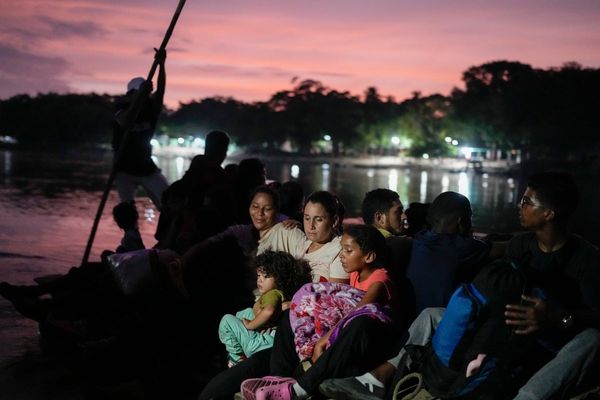Colombia has decriminalised abortion during the first 24 weeks of pregnancy, adding to a recent string of legal victories for reproductive rights in Latin America.
The South American country’s constitutional court ruled five against four to decriminalise the procedure on Monday evening. The decision follows a series of rulings in Mexico and Argentina that lowered barriers to abortion.
Previously, abortion in Colombia was allowed only where there was a risk to the life or health of the pregnant mother; the existence of life-threatening foetal malformations; or when the pregnancy was the result of rape, incest or non-consensual artificial insemination.
“We celebrate this ruling as a historic victory for the women’s movement in Colombia that has fought for decades for the recognition of their rights,” said Erika Guevara-Rosas, Americas director at Amnesty International, in a statement. “Women, girls and people able to bear children are the only ones who should make decisions about their bodies.”
“Now, instead of punishing them, the Colombian authorities will have to recognise their autonomy over their bodies and their life plans,” Guevara-Rosas, went on to say.
As the ruling was handed down, protesters in favour of access to abortion clad in green – the colour adopted by the pro-choice movement – celebrated in front of Colombia’s constitutional court in downtown Bogotá, the capital. Anti-abortion protesters also demonstrated against the ruling.
Abortion rights groups, collectively known as the Green Wave, sued to have abortion removed from the penal code. The movement had previously seen the constitutional court decide not to rule on the matter several times in the past two years.
Reproductive rights groups estimate that as many as 400,000 abortions are performed each year in Colombia, with only 10% carried out legally. During 2020, at least 26,223 unsafe abortions were carried out across Colombia, according to Profamilia – a local reproductive healthcare provider.
According to Causa Justa, a Colombian women’s rights coalition, at least 350 women were convicted or sanctioned for abortions between 2006 and mid-2019, including at least 20 girls under the age of 18.
Latin America, a traditionally conservative region with a powerful Catholic and evangelical Christian lobby, has some of the world’s most restrictive abortion laws, often banning the procedure outright. In El Salvador, dozens of women have been jailed for homicide after suffering obstetric emergencies.
“We applaud the constitutional court’s legal and political courage in recognising that women and girls are not second-class citizens,” said Paula Avila-Guillen, an international human rights lawyer and executive director of the Women’s Equality Center, based in New York. “In constitutionally protecting our autonomy over our own bodies and lives, the court is changing the lives of millions of vulnerable women and girls disproportionally harmed by abortion restrictions.”
“We celebrate with Colombia’s Green Wave movement as the country becomes the third Latin American country to decriminalise abortion in the last two years,” Avila-Guillen said. “We know this will have a ripple effect in other countries in Latin America that have yet to take this step toward human rights and social justice.”
Mexico’s supreme court decriminalised abortion last year, while parliamentarians in Ecuador last week eased regulations which now allow access to abortion in cases of rape.
“While today we are celebrating this historic decision, the Green Wave is strong and growing, and the fight for reproductive rights and justice will not end until every person can access high-quality sexual and reproductive healthcare when and where they need it,” said Eugenia Lopez Uribe, the International Planned Parenthood Federation’s regional director for Americas and the Caribbean region, in a statement.






